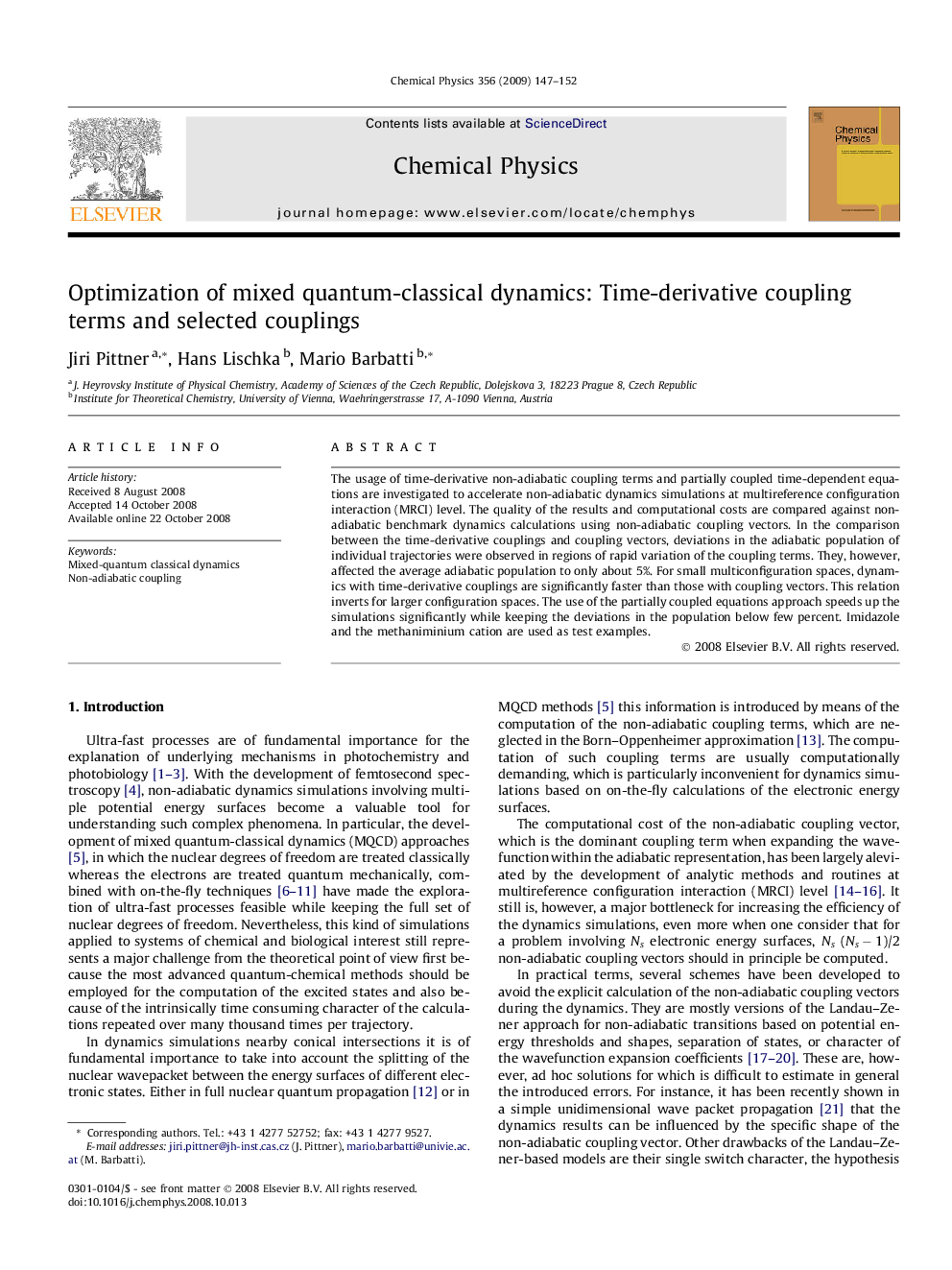| Article ID | Journal | Published Year | Pages | File Type |
|---|---|---|---|---|
| 5375575 | Chemical Physics | 2009 | 6 Pages |
Abstract
The usage of time-derivative non-adiabatic coupling terms and partially coupled time-dependent equations are investigated to accelerate non-adiabatic dynamics simulations at multireference configuration interaction (MRCI) level. The quality of the results and computational costs are compared against non-adiabatic benchmark dynamics calculations using non-adiabatic coupling vectors. In the comparison between the time-derivative couplings and coupling vectors, deviations in the adiabatic population of individual trajectories were observed in regions of rapid variation of the coupling terms. They, however, affected the average adiabatic population to only about 5%. For small multiconfiguration spaces, dynamics with time-derivative couplings are significantly faster than those with coupling vectors. This relation inverts for larger configuration spaces. The use of the partially coupled equations approach speeds up the simulations significantly while keeping the deviations in the population below few percent. Imidazole and the methaniminium cation are used as test examples.
Keywords
Related Topics
Physical Sciences and Engineering
Chemistry
Physical and Theoretical Chemistry
Authors
Jiri Pittner, Hans Lischka, Mario Barbatti,
